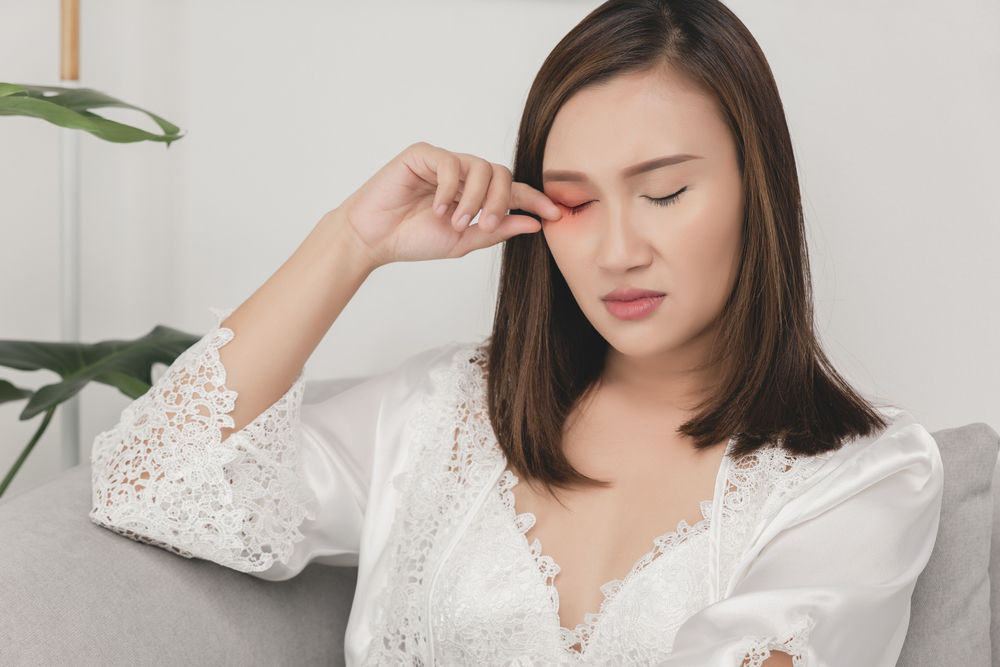
Any form of irritation or discomfort in the eyes is not a nice experience for anyone, and there are many different problems and issues that can affect them. Given that many share the same symptoms it is often not straightforward to tell what the problem is and what treatment you need to make it better. A common example of two conditions with very close matching symptoms is dry eye and allergy-related issues. So how do you tell the difference between the two?
What Are Allergies And How Are They Caused?
An allergic reaction happens when your body is exposed to a substance (usually harmless) that your body perceives as potentially dangerous. When this happens histamines, a chemical that helps the body protect itself from things it thinks are dangerous, are released to fight off that danger. Histamines however also cause a range of other effects on our body which can include swelling, itching, and excessive watering of the eyes, all symptoms commonly associated with an allergic reaction affecting the eyes.
There are two principal types of allergies: seasonal allergies, which occur at certain times of the year due to the release of allergens at those specific times, such as the increased release of flower pollen in spring and summer, and non-seasonal allergies, which will see a person react to certain substances all year round, food coloring for example.
Eye allergies can be triggered by a wide range of different things, some of the common causes are:
Pollen (flower, grass, or tree)
Animal Dander
Cosmetic products focused on the eye (mascara, eyeliner)
Dust
Aerosol Sprays
Perfumes
Chlorine in swimming pools
To help limit symptoms as much as possible, it is important to learn and understand what the triggers for the allergic reaction are so that you can minimize exposure to them as much as possible.
What Is Dry Eye And What Causes It?
Dry eye is a condition that manifests exactly as its name would suggest. It is an issue caused by a lack of a healthy tear film on the eyes. Dry eye is caused by either tear ducts not producing enough tears, or the tear film dissipating too quickly, leaving the eyes without sufficient lubrication.
It is essential for good eye health that a sufficient tear film provides the correct lubrication to our eyes. This tear film helps wash away particles of dust, dirt, and grit, and helps protect the eyes from infection. If your body is not making the correct tear film, it is increasingly likely that you will experience irritation in the eyes with symptoms such as itching and feeling like you have something in your eye. Other symptoms can include blurred vision, redness of the eyes, and increased sensitivity to light, symptoms also commonly associated with eye allergies.
How Do I Know What Treatment I Need?
The best way to make sure that you get the right treatment for your condition is to visit your eye doctor. Your eye doctor will carry out an assessment to establish what the cause of your symptoms is, and then suggest an appropriate treatment to correct the problem.
If caused by allergies, the first step your eye doctor will suggest is to limit, and where possible completely remove any exposure to the allergen in question if it can be identified. Additionally, they will prescribe antihistamine medication, in the form of eye drops, tablets, or liquid medicine to help reduce the symptoms. In the most severe cases, they may also prescribe immunosuppressant drugs, however, this is very rare.
If you are suffering from dry eye, treatment will be centered around removing any inflammation or blockages in the tear ducts which may be causing symptoms. There is a range of different treatment methods to achieve this including eyedrops, anti-inflammatories taken orally, warm compress, massage, and antibiotics.
If your doctor believes that the problem is caused by the tear film dissipating too quickly, they may suggest a minor surgical procedure to correct the issue. This procedure involves inserting small plugs into the drainage channels, this helps keep the tear film on the eye for longer, helping to relieve symptoms and restore the health benefits that a good tear film offers.
If you would like any help or advice regarding dry eyes, allergies, or the difference between both, visit Highline Eye Care in Flagstaff, AZ. Call (928) 240-9214 to schedule an appointment today.











